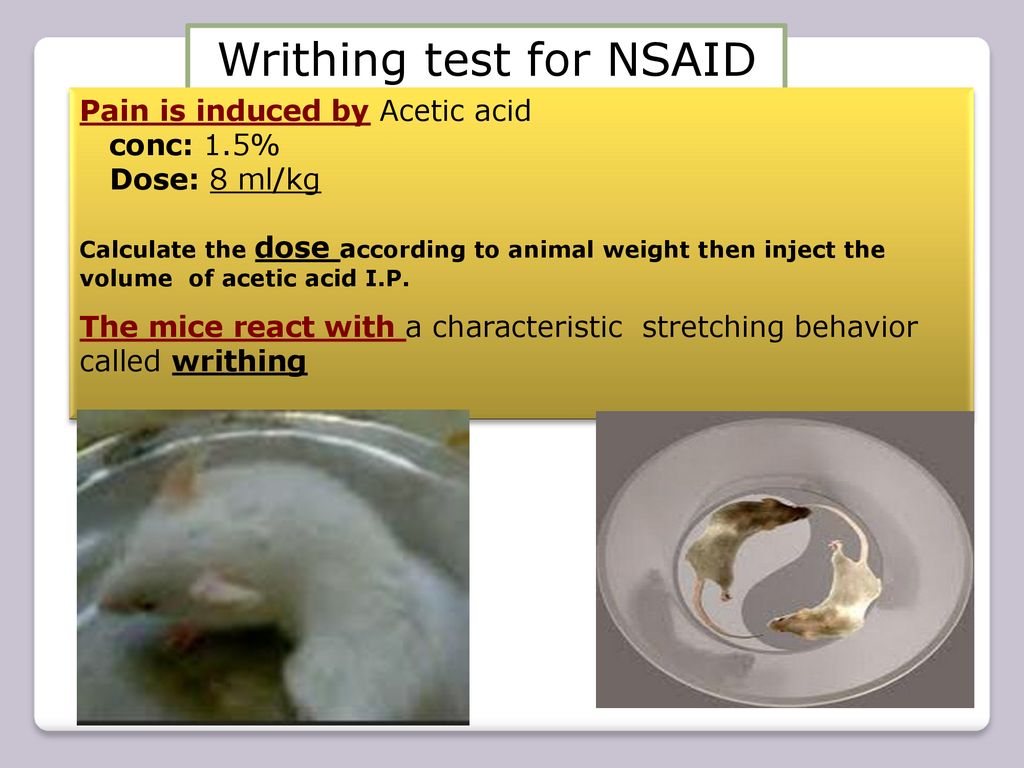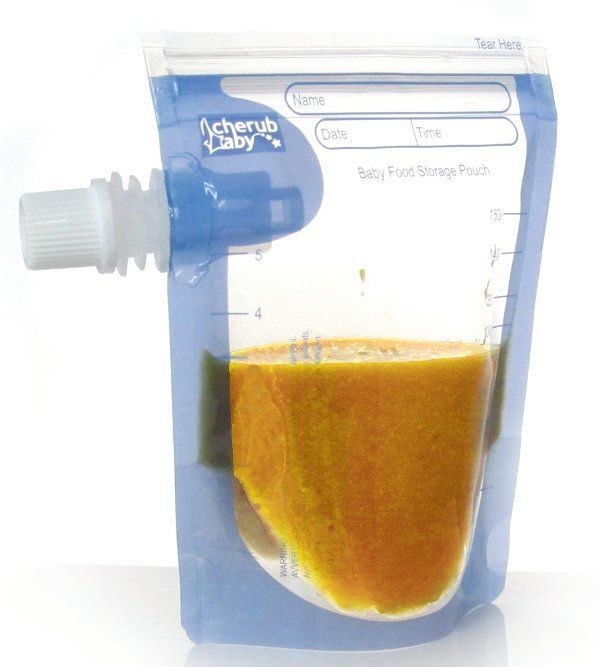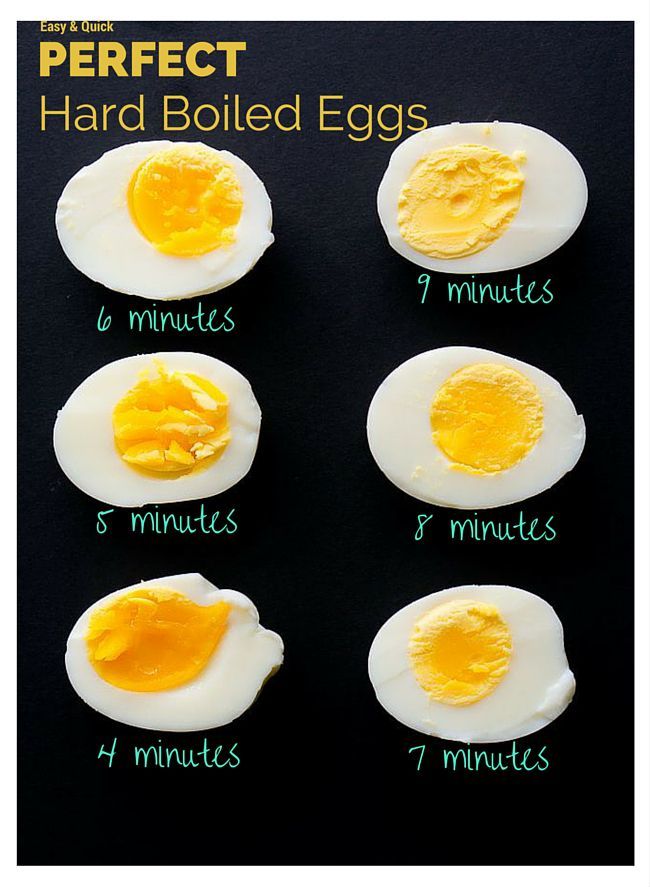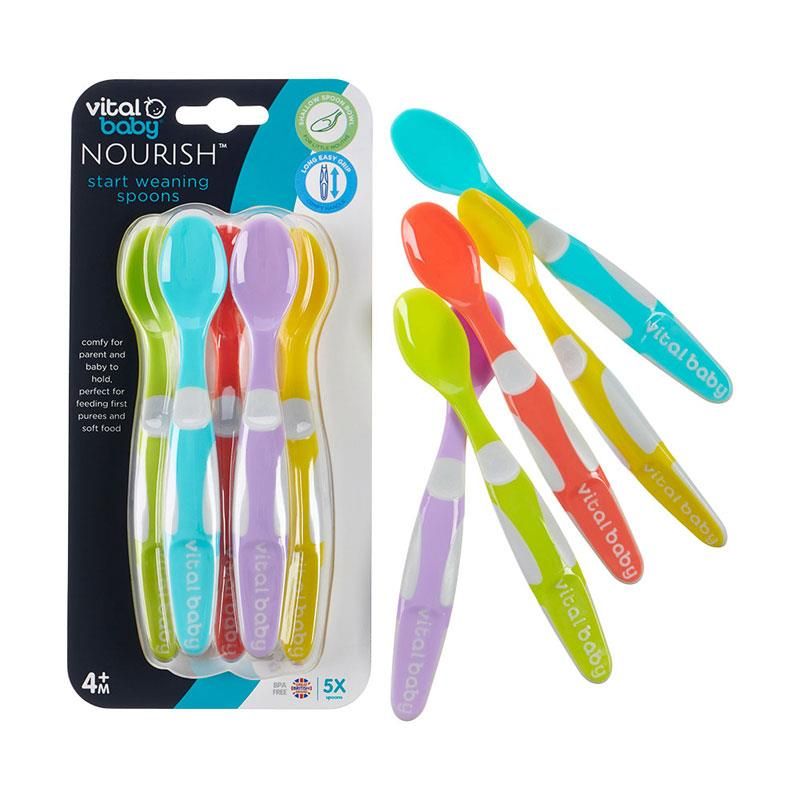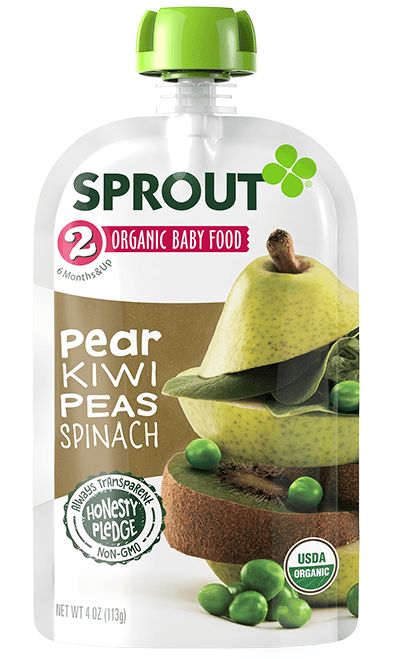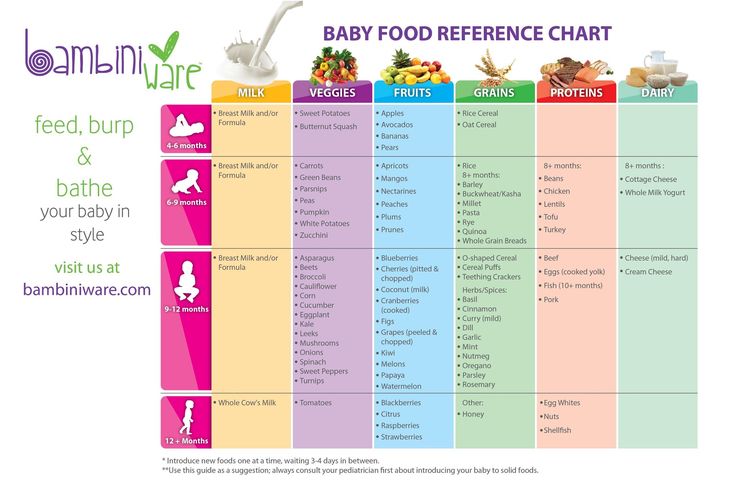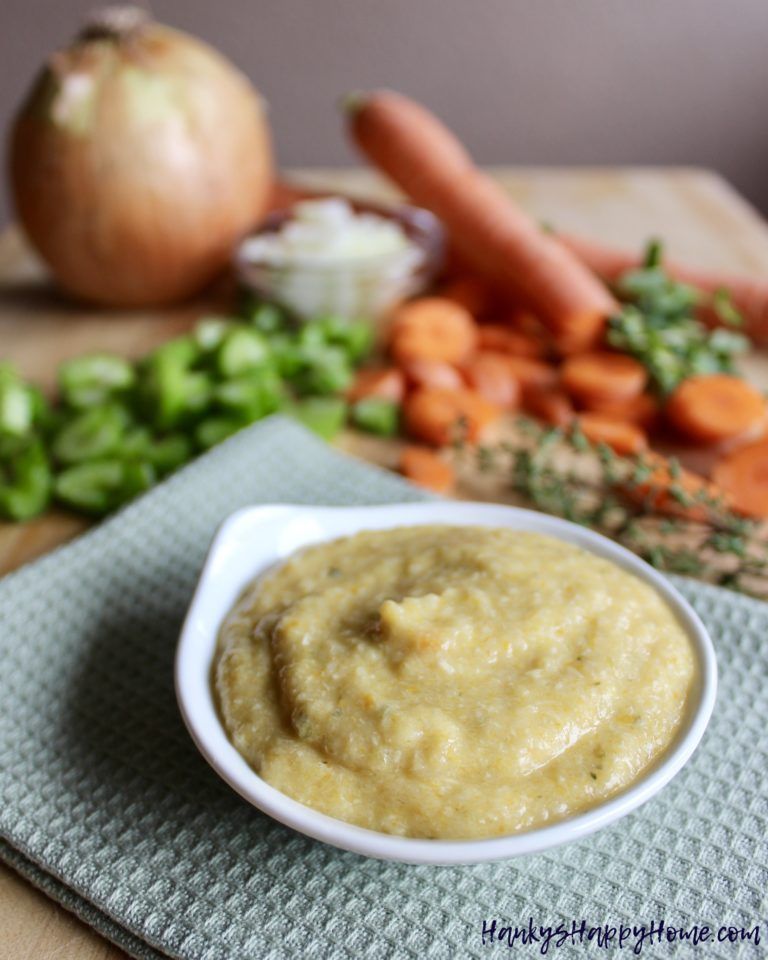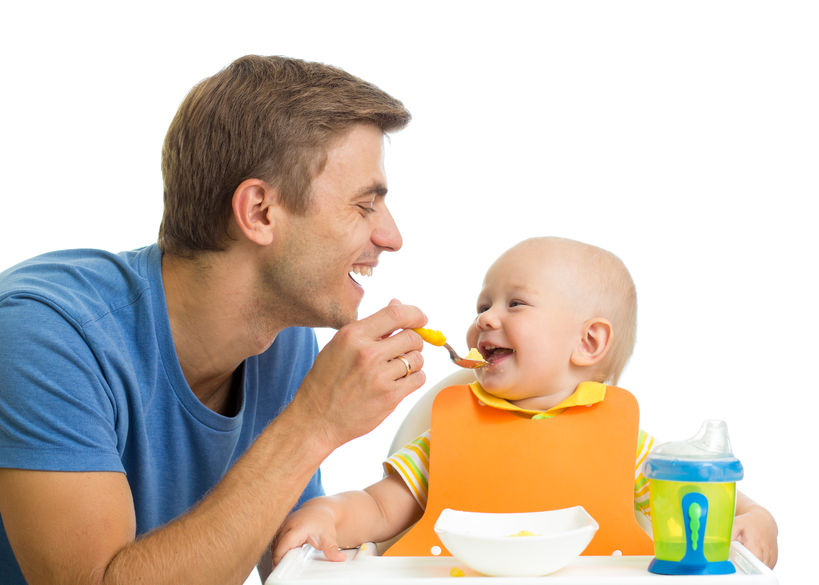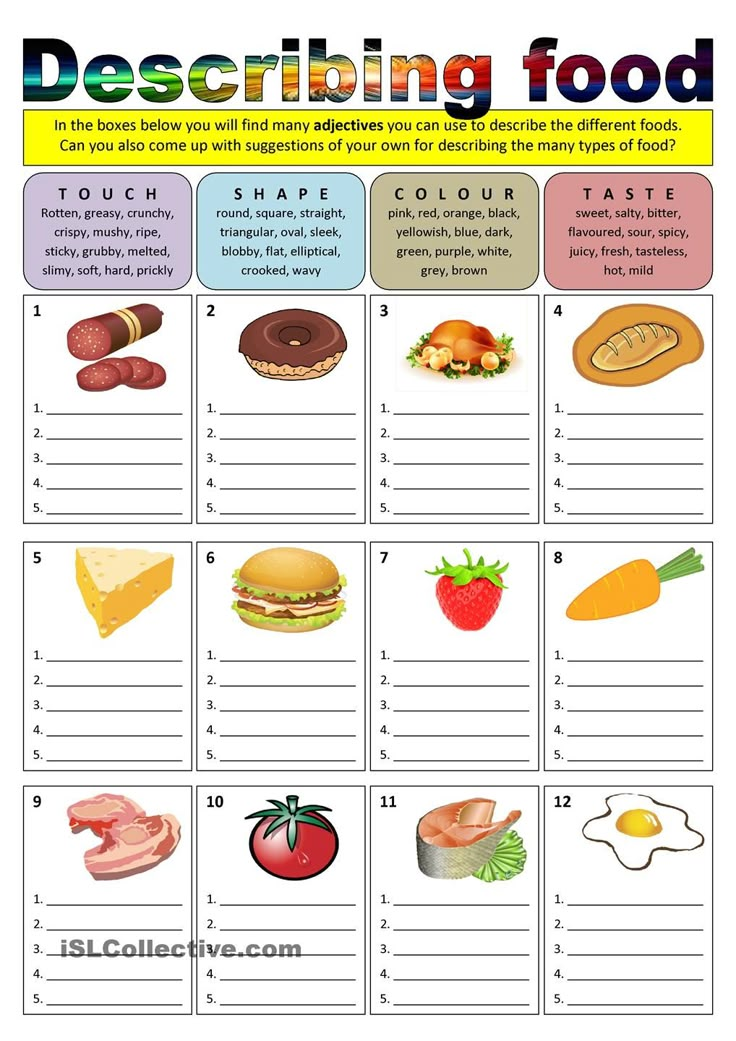Baby writhing in pain after feeding
Winding and burping your baby
Wind is air that your baby has swallowed when they were feeding, crying or yawning. Wind is common from the newborn stage to about 3 months, as your baby’s digestive system matures.
Common signs of trapped wind include:
- squirming or crying during a feed
- looking uncomfortable and in pain if laid down after feeds
Some babies need a little more help than others to release wind. To wind your baby, hold them in an upright position against your shoulder. Massage their back.
When your baby gets wind
Every baby is different and over time you will get to know your baby’s cues.
Sometimes the wind builds up from the day’s feeds. This is common when babies are unsettled during feeding time in the late afternoon or evening.
Most babies will experience this time of being unsettled. Some suffer worse than others. It usually begins around 2 to 4 weeks old and may last for 6 weeks.
Tips for winding
Watch a video on how to wind your baby.
Please accept Youtube cookies to view this content.
Read our cookies policy to find out more about our cookies and how we use them.
General tips
- Skin-to-skin contact may relax your baby and wind may break more easily.
- Hold your baby up against your shoulder after a feed and massage their back.
- After feeding, keep your baby in an upright position.
- Walk with your baby in your arms or in a baby sling. The upright position gently helps to relax them. Put a gentle little bump or bounce in your walk.

- Try the "magic baby hold". Hold your baby's back against your tummy. Their tummy should rest on your crossed arms. Their legs and arms should gently fall either side of your arms.
- Respond as quickly and appropriately as possible to your baby crying. Give them comfort by feeding, holding, rocking, singing or another method. Leaving a baby to cry will cause more air to be swallowed and will make their wind worse.
Breastfeeding tips
- Make sure your baby is positioned and attached well to your breast. Ask your public health nurse or lactation consultant to observe a breastfeed if you need help.
- Hand expressing a small amount of milk before feeding can help to slow down the flow of milk.
Breastfeeding
Formula feeding tips
- Wind your baby often during and after each feed, this may help ease the build-up of wind.
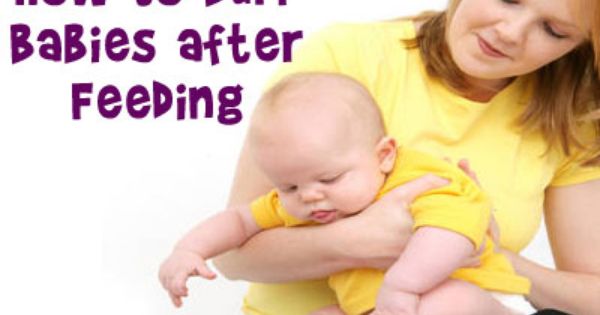
- Reduce the flow of feed from the bottle or try a different teat size.
- Tilt the bottle so the teat and the neck of the bottle are constantly full of milk.
- When your baby pauses, tilt the bottle down or remove the teat. This allows your baby to rest for a moment.
- Don’t let your baby suck on the bottle when the feed is finished or when only milk bubbles are left.
- Let your baby’s bottle stand until all the air bubbles produced by shaking have settled.
- Hold your baby a little more upright, rather than lying them flat while you are feeding them their bottle.
- If you are considering changing your baby's infant formula milk, discuss it with your public health nurse first. Avoid chopping and changing between brands or types of formula. Frequently changing can cause your baby to become more unsettled.

How to give a baby a bottle
Page last reviewed: 20 November 2022
Next review due: 20 November 2025
Baby Cries After Feeding: What Should I Do?
Medically reviewed by Karen Gill, M.D. — By Chaunie Brusie on October 3, 2018
My daughter, the “crier”
My second daughter was what my oldest fondly referred to as a “crier.” Or, in other words, she cried. A lot. The crying with my baby girl seemed to intensify after every single feeding and particularly at night.
It was those hellish hours between darkness and dawn when my husband and I would take turns walking around the house with her in our arms, praying and, mostly in my case, sobbing because we couldn’t console our baby.
I didn’t know it then in my sleep-deprived state, but my daughter’s crying after feedings wasn’t that uncommon. In combination with her frequent spitting up, it was pretty much a classic textbook case of colic.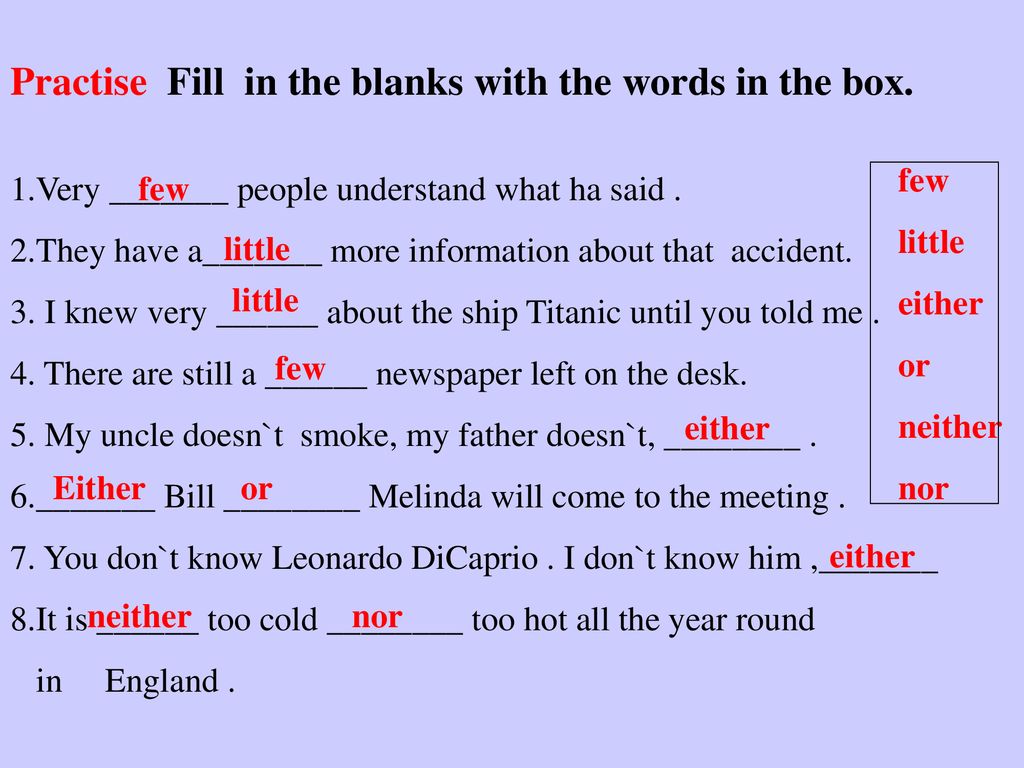
Colic
Colic, in technical terms, simply means a “crying, fussy baby that doctors can’t figure out.”
OK, so that’s not really the definition, but in essence, that’s what it boils down to. The British Medical Journal (BMJ) lists one criterion for colic: A baby that cries for at least three hours a day, three or more days a week, and is under 3 months old. Check, check, and check.
There isn’t one single known cause of colic. Even the actual clinical incidence of colic, estimated by BMJ to be around 20 percent of all babies, can be tricky.
Acid reflux
One of those causes of crying after feeding and spitting up in babies is actually acid reflux. This condition is known as gastroesophageal reflux disease (GERD) if it also causes significant symptoms such as poor weight gain.
When my “crier” daughter was 5, she frequently complained of her stomach hurting and as a result, had to undergo a series of testing with a gastroenterologist, a doctor that specializes in the GI system.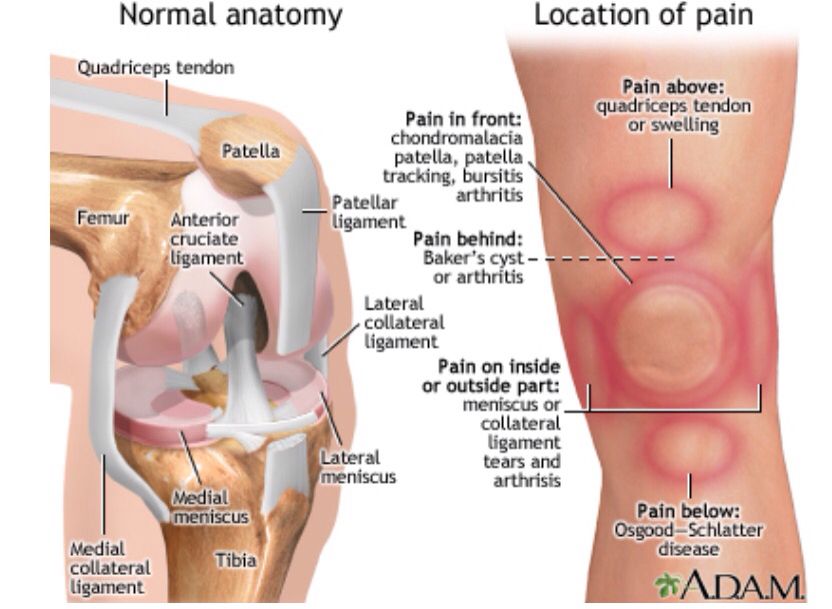
At our first appointment, the very first question he asked me was if she had colic as a baby and if she spit up a lot, to both of which I practically shouted, “Yes! How did you know?!”
He explained that acid reflux or GERD can manifest as symptoms similar to colic in babies, stomach pain in school-aged children, and later as actual heartburn pain in adolescents.
While many infants spit up, fewer have actual GERD, which can be caused by an underdeveloped flap between the esophagus and stomach or a higher-than-normal production of stomach acid.
In most cases, a diagnosis of infant reflux is simply based on your baby’s symptoms. If your doctor suspects a severe case however, there are several different tests that actually diagnose infant reflux.
Testing can involve taking a biopsy of your baby’s intestine or using a special type of X-ray to visualize any affected areas of obstruction.
Food sensitivities and allergies
Some babies, especially breastfed babies, may be allergic to certain food particles that their mothers are eating.
The Academy of Breastfeeding Medicine notes that the most common offender is cow’s milk protein in the mother’s milk, but even a true allergy is very rare. Only about 0.5 to 1 percent of exclusively breastfed babies are thought to be allergic to cow’s milk protein.
The other most common culprits, according to the ABM, are egg, corn, and soy, in that order.
If your baby is displaying symptoms of extreme irritability after feedings and has other symptoms, such as bloody stools (poop), you should speak with your healthcare provider about getting them tested for allergies.
Aside from a true allergy, there’s also been some evidence that following a low allergen diet while breastfeeding (essentially avoiding those top allergy foods, such as dairy, eggs, and corn) may be beneficial for infants with colic.
Strict elimination diets can have their own risks, so speak with your doctor before significantly changing your diet.
In our situation, I found that dairy, caffeine, and certain seeded fruit exacerbated my daughter’s crying and spitting up. By eliminating those foods and substances from my diet, I was able to help lessen her discomfort.
By eliminating those foods and substances from my diet, I was able to help lessen her discomfort.
If you have a baby with colic, you might want to try anything at all to help ease your baby’s crying. If you’re curious to see if your diet has any effect, you can start by logging your food in a food journal and writing down your baby’s reactions after each meal.
Next, you can eliminate one food at a time and see if reducing your intake of certain foods seems to make a difference in your baby’s behavior. If you hit on one you feel helps your baby to cry less, this does not mean they will not be able to eat that food in the future.
Just be sure to keep in mind that a true allergy is rare. Also, be sure to monitor for any additional symptoms, such as blood in your baby’s poop.
Gas
If your baby is crying a lot after every feeding, it may simply be a buildup of air swallowed while eating. It’s thought that bottle-fed babes in particular may be more prone to swallowing a lot of air during a feeding.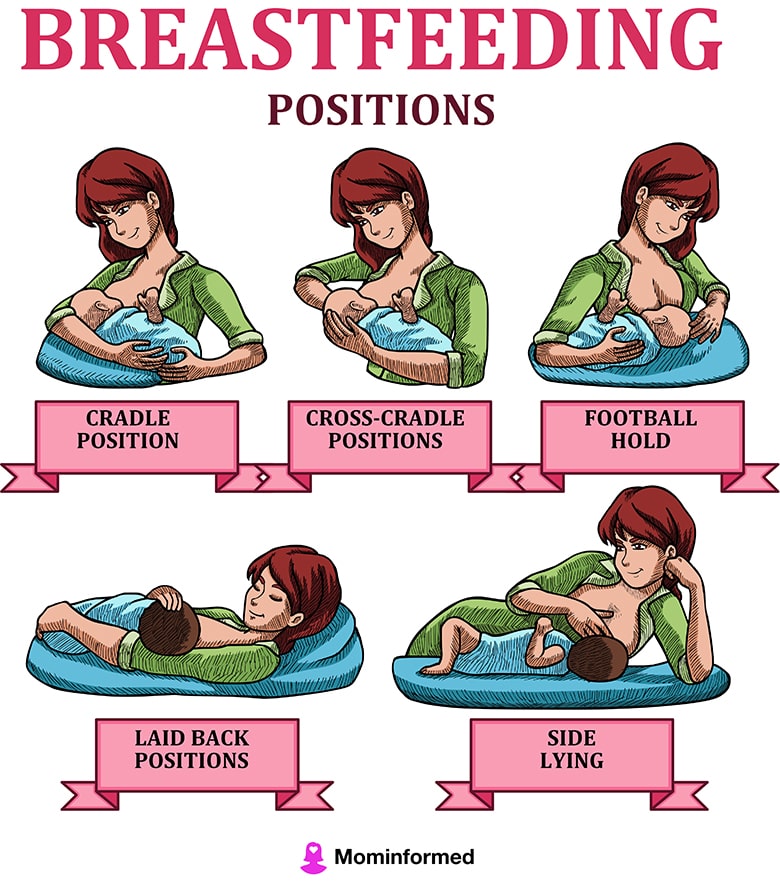 This can trap gas in their stomachs and be uncomfortable.
This can trap gas in their stomachs and be uncomfortable.
In general, breastfed babies swallow less air while eating simply due to the way they eat. But every baby is different and even breastfed babies may need to be burped after a feeding.
Trying keeping your baby upright after a feeding and burping gently from the bottom of their back and up through the shoulders to work the gas bubbles up and out. Also check out this illustrated guide to burping a sleeping baby.
Formula
If your baby is formula-fed, swapping out the formula you use may be a simple solution to a crying baby after feedings. Every formula is a little bit different and certain brands make formulas for more sensitive baby tummies.
If you decide to try this, talk to your baby’s pediatrician about whether an elemental formula would be a good choice to try for a week. If you try one different brand and you see no change in your baby’s fussiness, continuing to try different brands is unlikely to help.
Takeaway
Colic, along with a few other common conditions, might be the culprit if you too have a “crier” on your hands.
If your baby doesn’t find relief after dietary changes or additional burping, then make an appointment to see their doctor.
Share on Pinterest
Chaunie Brusie, BSN, is a registered nurse with experience in labor and delivery, critical care, and long-term care nursing. She lives in Michigan with her husband and four young children, and is the author of the book “Tiny Blue Lines.”
Last medically reviewed on October 3, 2018
- Parenthood
- Baby
- 06 Months
How we reviewed this article:
Healthline has strict sourcing guidelines and relies on peer-reviewed studies, academic research institutions, and medical associations. We avoid using tertiary references. You can learn more about how we ensure our content is accurate and current by reading our editorial policy.
- ABM clinical protocol #24: Allergic proctocolitis in the exclusively breastfed infant. (2011). DOI:
10.1089/bfm.2011.9977 - Harrel MC, et al. (2015). Is there a correlation between maternal diet in breastfeeding mothers and infantile colic? DOI:
10.1097/01.EBP.0000541032.94135.ca - Mayo Clinic Staff. (2018). Infant reflux.
mayoclinic.org/diseases-conditions/infant-acid-reflux/diagnosis-treatment/drc-20351412 - Rosen LD, et al. (2007). Complementary, holistic, and integrative medicine.
pedsinreview.aappublications.org/content/28/10/381 - Saavedra MA, et al. (2003). Infantile colic incidence and associated risk factors: A cohort study. .
ncbi.nlm.nih.gov/pubmed/14502331 - Sung V, et al. (2014). Treating infant colic with the probiotic Lactobacillus reuteri: Double blind, placebo controlled randomised trial. DOI:
10.1136/bmj.g2107 - Symptoms & causes of GER and GERD in infants.
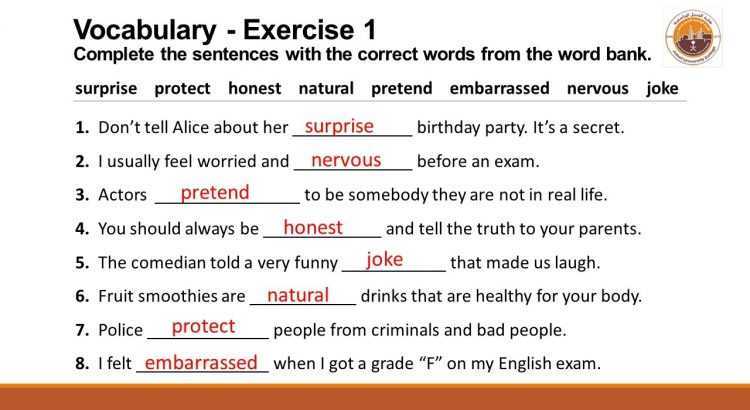 (2015).
(2015).
niddk.nih.gov/health-information/digestive-diseases/acid-reflux-ger-gerd-infants/symptoms-causes
Our experts continually monitor the health and wellness space, and we update our articles when new information becomes available.
Current Version
Oct 3, 2018
Written By
Chaunie Brusie
Edited By
Nizam Khan (TechSpace)
Medically Reviewed By
Karen Richardson Gill, MD
Share this article
Colic - they pass! - articles from the specialists of the clinic "Mother and Child"
You can't confuse anything with anything
A healthy child was discharged from the maternity hospital, he grows and pleases his loved ones. Yes, the baby sometimes cries a little, but what children do not cry! Moreover, over time, mom and dad get used to their new role and gradually understand what their baby needs. Yes, and the reasons for crying are usually simple: the child wants to sleep or, conversely, to communicate, he is cold or hot, in the end, he most often just needs to eat! Later, when colic begins, that crying of the first days and weeks of life will seem to parents only a slight irritation or whims. But mom and dad don’t know this yet and just rejoice at how their son or daughter is gaining weight and gaining strength. And suddenly out of the blue it starts! Usually in the afternoon, a child who was completely calm before that first frowns, wriggles, twists his mouth, grunts, then such a cry is heard that at the first moment especially tremulous parents clutch at their hearts. The baby presses the legs to the stomach, and often beats the air with his hands, his face turns red from crying, and his stomach tenses. And suddenly the child stops. Gone? No, almost immediately everything repeats again. And so at least half an hour in a row, and as a maximum - several hours a day. In the end, the child's strength ends and he falls asleep in exhaustion. Exhausted parents, too. The next day everything starts all over again. nine0005
But mom and dad don’t know this yet and just rejoice at how their son or daughter is gaining weight and gaining strength. And suddenly out of the blue it starts! Usually in the afternoon, a child who was completely calm before that first frowns, wriggles, twists his mouth, grunts, then such a cry is heard that at the first moment especially tremulous parents clutch at their hearts. The baby presses the legs to the stomach, and often beats the air with his hands, his face turns red from crying, and his stomach tenses. And suddenly the child stops. Gone? No, almost immediately everything repeats again. And so at least half an hour in a row, and as a maximum - several hours a day. In the end, the child's strength ends and he falls asleep in exhaustion. Exhausted parents, too. The next day everything starts all over again. nine0005
If you are very lucky, then such attacks will last only one or two times per evening for 30 minutes - 1 hour. On average, the attack lasts up to 3 hours. But there is a worse option: every day the strength, duration and frequency of screams will increase, until in the end the child starts screaming every two hours in the morning, and in the afternoon, and in the evening, and at night, of course.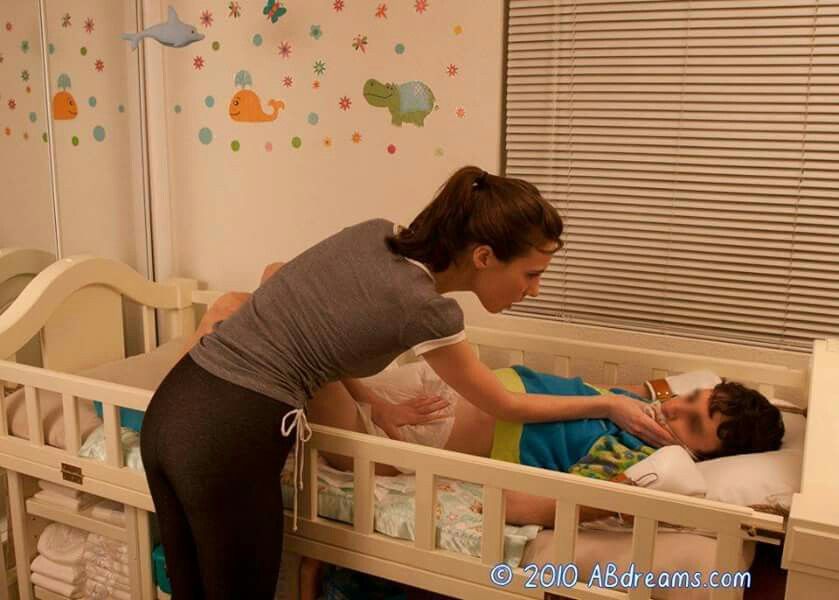 It will seem to parents that now this one is forever, but by 3 months babies are miraculously healed, only a few have colic that lasts up to 4-5 months (it’s good that they are already much less pronounced). That's what they are, infantile colic! nine0009 Well, from the point of view of doctors, colic is just paroxysmal pain in the abdomen, accompanied by pronounced anxiety of the child.
It will seem to parents that now this one is forever, but by 3 months babies are miraculously healed, only a few have colic that lasts up to 4-5 months (it’s good that they are already much less pronounced). That's what they are, infantile colic! nine0009 Well, from the point of view of doctors, colic is just paroxysmal pain in the abdomen, accompanied by pronounced anxiety of the child.
Many years ago it was noticed that there is a certain regularity in the manifestation of colic, the so-called "rule of three" :
- Colic often begins by three weeks of life - yes, this is almost always the case.
- Lasts an average of about three hours a day - unfortunately, this is only an average. nine0018
- Usually found in children of the first three months of life - fortunately, this is true.
There is also a positive moment in colic : usually the general condition of the child does not worsen with intestinal colic: the child has a good appetite, he gains weight as it should, in the intervals between bouts of colic the baby is cheerful and looks as if nothing had happened. Against the backdrop of an endless ora, parents are already happy with every little thing. And since there are no other symptoms other than crying, then colic is not considered a disease. Doctors call them a functional disorder in the work of the gastrointestinal tract (this means that there is no structural disturbance in it, it’s just that the digestive system is not yet working quite correctly). nine0005
Against the backdrop of an endless ora, parents are already happy with every little thing. And since there are no other symptoms other than crying, then colic is not considered a disease. Doctors call them a functional disorder in the work of the gastrointestinal tract (this means that there is no structural disturbance in it, it’s just that the digestive system is not yet working quite correctly). nine0005
Have you read this far and become a little scary?
The best news: not all children have colic! There are lucky ones who only shrug their shoulders in surprise when asked if their child had colic.
The reason is not established
There is another interesting feature of colic: it is difficult to determine exactly why colic occurs. There are many reasons for this, and each baby can have his own:
- Enzymatic system of the gastrointestinal tract is not yet mature. Therefore, the food is not fully digested and too much gas is formed in the intestines, the gases stretch the walls of the intestine, hence the pain.
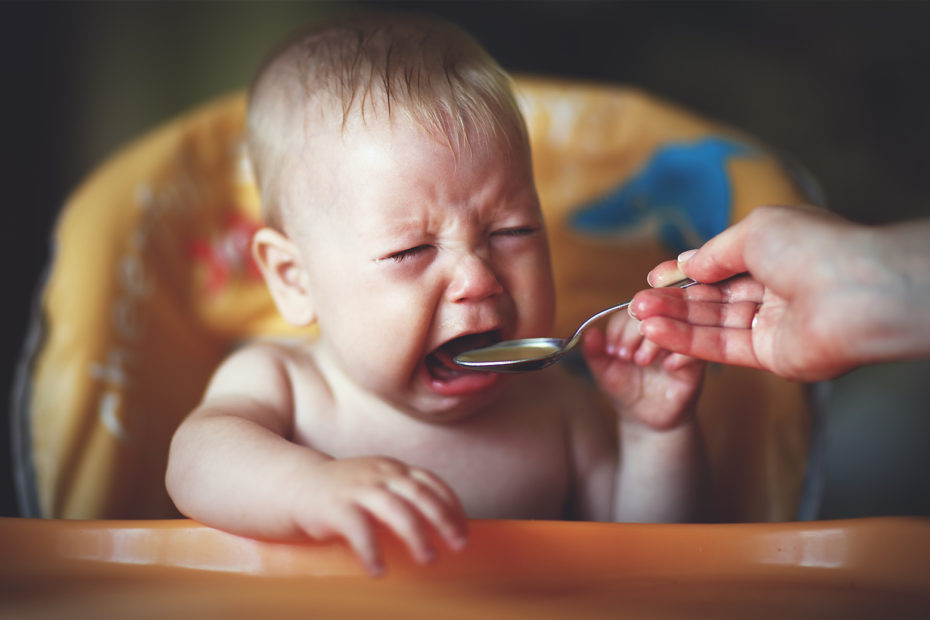
- The intestinal microflora is not yet fully established and changes frequently, again leading to excess gas and pain.
- The neuromuscular apparatus of the intestine is also not yet fully mature. As a result, intestinal motility and spasms increase.
- The baby swallows too much air during feeding (he is not attached to the breast correctly or he suckles too greedily). Air stretches the walls of the intestines, which is also painful for many children. nine0018
- Mom is breastfeeding and eating a lot of dairy products, and the baby is allergic to cow's milk protein. As a result of this allergy, the intestinal wall is damaged. Secondary lactase deficiency occurs, the child lacks the enzyme lactase, which breaks down milk sugar. Sugar ferments in the intestines, there are more and more gases and, as a result, pain occurs.
- The baby has an increased sensitivity of the intestinal wall to stretching. The child feels pain that another infant (or adult) will not pay attention to.
 nine0018
nine0018 - If the baby is bottle-fed, then the whole thing may be in the mixture. Most likely, it is not suitable for a child.
Well, if the cause of colic is some one and not very serious. For example, a baby swallows a lot of air during feeding. Then the colic will not be too pronounced. In addition, it is not difficult to eliminate this cause, you just need to adjust the feeding. As a rule, colic is quite tolerable as long as the child has functional immaturity of the gastrointestinal tract (for example, the microflora has not been established or there are few enzymes). The baby cries in the evening, even if for three hours, but 21 hours out of 24 he is quite calm. In the end, when every evening (or three or four times a week) the same scenario is repeated, you already get used to it. nine0005
But if there are several causes of colic at once or there is an allergy to cow's milk protein with lactase deficiency, then parents will fully feel what it is like when a child throws a tantrum every two hours.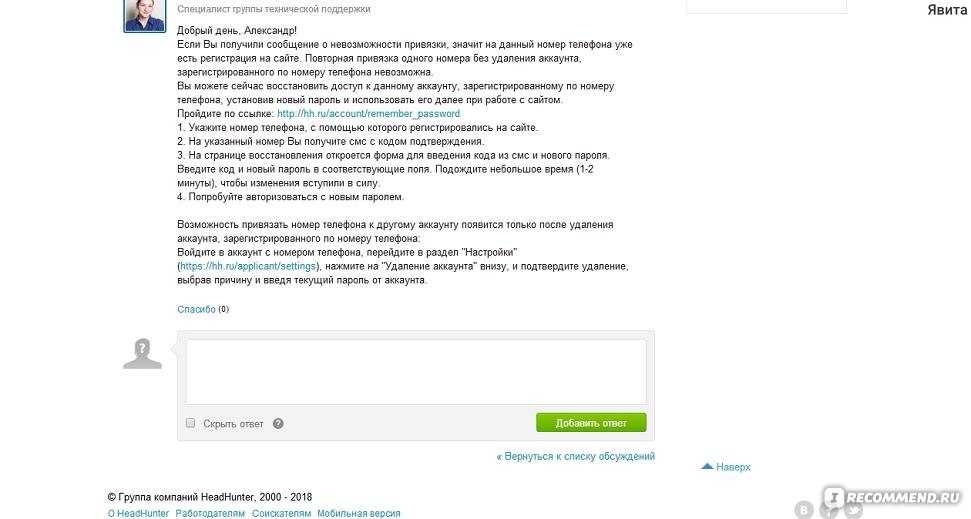
To make it easier for the pediatrician to figure out what is likely to cause colic, parents should tell them as much as possible about their child. To do this, will have to keep a diary of colic and nutrition of baby . By the way, some mothers are so addicted to these records that they continue to keep them even when the colic has already passed (just in case). Well, then they get used to the fact that there are no more colic, and calm down. nine0005
What should be recorded in the food diary:
- When colic occurs: before, during or after feeding, if after feeding, after what time.
- How long does colic last.
- Is there any rhythm in colic, do they occur at the same time or at different times.
- When colic is most pronounced (morning, afternoon, evening).
- How a mother feeds a child - breastfeeding or formula. If breastfeeding, then how many milliliters the baby eats in one feeding.
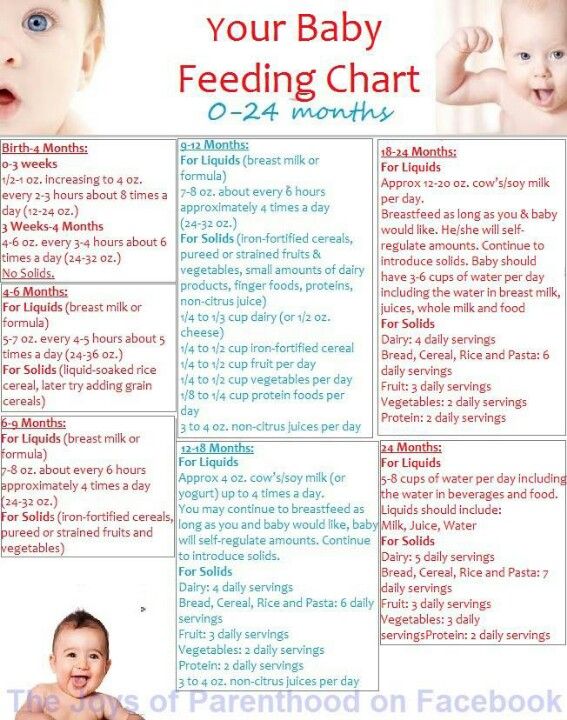 Breastfeeding by the hour or free. nine0018
Breastfeeding by the hour or free. nine0018 - If formula is given, what kind, dosage and how often.
- What does a mother eat if she is breastfeeding.
What to do about it
Is it necessary to somehow examine a child with colic? Even if the doctor says that the baby has the most common colic, parents will still want to take a lot of tests and ultrasound of the abdominal cavity.
And it is clear that the more a child cries, the more mom and dad want to examine him .
Ultrasound usually shows that the structure of the internal organs of the child is all right (immaturity and allergy are not visible on ultrasound). But parents even from this are already calmer. In coprology (fecal analysis), some changes are possible, and in the analysis of feces for carbohydrates (it confirms lactase deficiency), carbohydrates will be increased. Microbiological examination of feces (sowing) does not bring clarity to the picture of colic.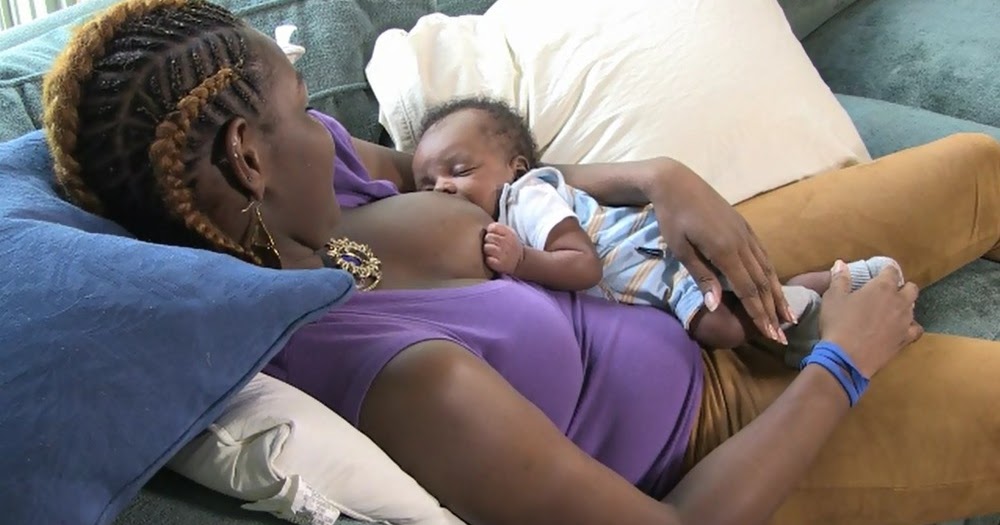 The composition of the microflora, and so on, may not yet be fully established, and against the background of increased gas formation, in addition, it will be changed. nine0005
The composition of the microflora, and so on, may not yet be fully established, and against the background of increased gas formation, in addition, it will be changed. nine0005
So what to do now? As already mentioned, colic disappears with age. Someone will say that you just need to be patient and wait. This, of course, is true, but when the baby cries and screams all the time, it affects the nervous system of everyone around. The situation in the house becomes nervous, the parents calm the baby with their last strength, and the mother also needs to feed the child, and walk with him, and cook food. Dad is also exhausted by endless screams and night vigils, and he is the breadwinner in the family, plus, if driving, he must concentrate on the road. In general, everyone needs rest, which means that colic needs to be dealt with somehow. nine0005
Let's say right away that there is no 100% effective treatment for colic: although many ways have been invented to deal with them.
Someone helps one thing, someone else - you have to try almost all methods:
Proper feeding . If the mother is breastfeeding on demand, then feeding should not become erratic, especially if colic is aggravated during meals or immediately after it. The baby should not swallow air during feeding, so you need to make sure that he completely captures the areola. If the baby is bottle-fed, then the nipple should be age-appropriate (the hole for milk in it should not be very large). You can use special anti-colic bottles - they prevent the swallowing of air during feeding. Before feeding the baby, you can put it on your stomach for 10-15 minutes, this stimulates the intestines. After feeding, the child must be held upright so that he burps the air. But for some reason, colic often occurs even if all these rules are observed. nine0005
Heat and massage . For some children, colic is relieved (or relieved) by putting something warm on their stomach or simply taking a warm bath. Someone helps just a diaper folded several times and ironed with an iron. But caring fathers wear someone for hours, attaching to their chest, or simply put the baby on their stomach, but, alas, there is no effect. The same thing happens if you give the baby a light massage of the abdomen in a clockwise direction: it will not help, you can only guess. nine0005
Mom's food . Pediatricians often recommend that mom exclude any dairy and sour-milk products (milk, cheese, cottage cheese, yogurt, kefir, ice cream) from her diet. Under the ban are products that, even partially, contain milk: for example, cookies, pastries. Well, women are no strangers to diets, especially since with severe colic in the crumbs, the mother will already agree to everything. Usually after 7-10 days you can see if the diet helps or not. If there are results, then it is most likely that the child is allergic to cow's milk protein and the mother will have to stay on a dairy-free diet for some more time. nine0005
Children's herbal teas and products with chamomile, fennel (they relieve intestinal spasm and improve flatulence) - again, the result is the opposite. But it is better not to give them yourself. Herbs can also be allergic, which will only increase colic. What remedy is better to give (or not to give anything at all), the pediatrician will decide.
Drugs that destroy the walls of the gas bubble . Here, as with other methods, the effect is often temporary and not 100%. After all, these funds only relieve the symptoms, and the cause of gas formation remains. nine0005
Enzymes for lactase deficiency . If it is confirmed, then enzymes (lactase) help well. The main thing is that the cause of colic is established correctly.
Motion sickness, wheelchairs and driving . They always rocked children, but it’s just necessary to pump, and not shake the child like a pear. Violent shaking can cause a concussion.
Unconventional products . It sounds strange, of course, but some parents claim that the sound of a vacuum cleaner or a hair dryer calms a screaming baby well. nine0005
Another way is to sleep outside. There are such amazing babies who, for some reason, calm down perfectly in the fresh air in the evening, but as soon as their mother tries to return home, they instantly wake up and raise a cry. As soon as evening colic begins, mothers grab the child, the stroller - and run into the street. And it’s not at all about riding in a stroller: the baby sleeps even if she just stands still. This is how mothers sit at the entrance until midnight. Nothing to say - heroic women! nine0005
As soon as evening colic begins, mothers grab the child, the stroller - and run into the street. And it’s not at all about riding in a stroller: the baby sleeps even if she just stands still. This is how mothers sit at the entrance until midnight. Nothing to say - heroic women! nine0005
Does the child have colic? Answer questions :
- Did colic start at about 3-4 weeks of age?
- Appear regularly, more often in the evening?
- Does the attack last about half an hour or more?
- Is relief after passing flatus or stool?
- Is the seizure accompanied by restless behavior?
- The cry is loud, piercing, undulating (sometimes it fades, then it reappears)? nine0018
- The tummy is swollen, does the baby press the legs to the stomach or twist them?
If there is a majority of positive answers, the probability that it is colic is high.
The child is 3 months old or a little more, the baby is more often almost always joyful and cheerful. And suddenly - colic disappear completely. What about parents? Parents do not believe their luck for a long time!
And suddenly - colic disappear completely. What about parents? Parents do not believe their luck for a long time!
why this happens and what parents should do
For people who do not have parental experience or education in pediatrics, babies are like space aliens. They look like adults, but they are different. And they make strange sounds. Some may be surprised even when the baby groans. nine0005
This is actually one of his ways of communicating. Up to two months, the child adapts to a new world for himself. And what he is not yet able to express in words, he demonstrates by behavior: groans, twitches his arms and legs, pushes, frowns. Grunting can be a sign of character building or active development in a child.
An infant can make such sounds from pleasure (for example, during feeding), or when something is given to him with effort (for example, raise his head while lying on his stomach, go big). If the baby grunts a lot and often, and his facial expressions indicate that these sounds are not caused by the most pleasant emotions, you should consult a pediatrician (1). nine0005
nine0005
Foreign doctors have a term grunting baby syndrome - "grunting baby syndrome". We call it infantile dyschezia, and it is associated with difficulty in emptying the intestines (2). This is just one of the reasons why a child may grunt. And he may have different reasons to communicate something to the world of adults in this way.
Why does a newborn baby grunt
— If the baby only grunts, breathes normally, eats and sleeps, gains weight and height, then this is normal. So he can just communicate with his parents or, for example, tell them that he wants to go to the toilet or that a small fold on his clothes is bothering him, explains pediatrician, neonatologist, anesthesiologist-resuscitator, blogger, author and expert of the first aid course for children Aelita Biryukova . - If parents have good contact with the child, they will always understand exactly how he groans when he wants to eat, and how he groans when, for example, he peed.
If crying is added to grunting, this may indicate that the child is hungry or needs attention, that he has a full diaper, or, for example, that he is hot.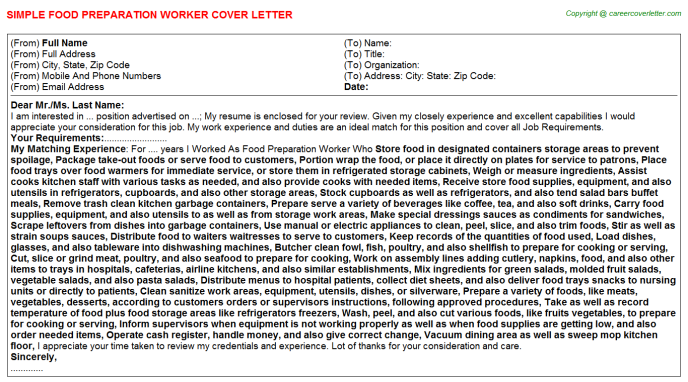 That is, in this case, it is not necessary that there is cause for alarm. nine0005
That is, in this case, it is not necessary that there is cause for alarm. nine0005
But often the baby groans, and even cries when he suffers from colic.
So, the most common causes of grunting in newborns are:
- he communicates like this;
- he has colic;
- child has difficulty breathing due to stuffy nose;
- he has a dream;
- the baby is uncomfortable in his clothes - they are too warm or tight;
- have problems with bowel movements;
- the child is hungry or thirsty.
What to do if a newborn baby is grunting
If the baby is grunting and pushing but there are no other reasons for concern (constipation or frequent loose stools, constant crying, high fever), it will most likely go away with time. But if the condition of the groaning child is alarming, you should see a doctor.
Colic is a common problem in infants during the first months of life (3). And what to do if this is the reason for the groaning?
- Starting from 2-3 weeks and ending at the age of 3 months, children have an active maturation of the gastrointestinal tract.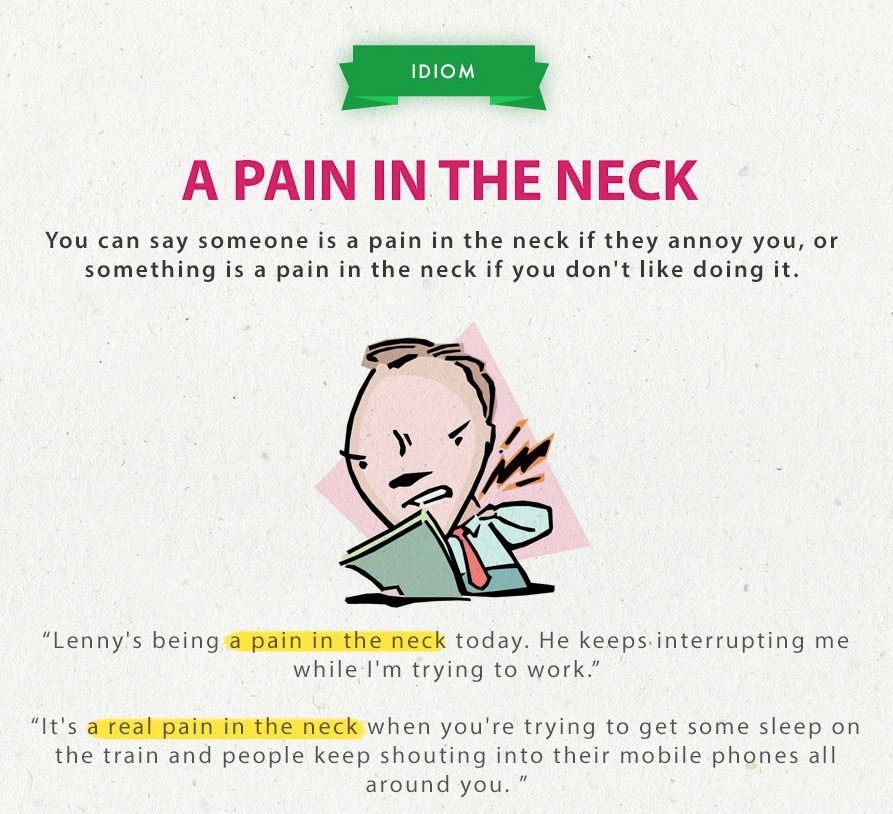 The immaturity of the gastrointestinal tract provokes a slight dysfunction, which may be accompanied by pain in the child's abdomen, explains Aelita Biryukova. Colic is always due to two causes. The first is distension of the intestines with gases. In this case, we see the inflated belly of the baby, he groans and strains under the influence of these gases. The second is spasms: when there is a peristaltic wave through the intestines. This happens often when there are long periods between feedings or when the baby is formula-fed. Therefore, on-demand breastfeeding is the best prevention option (4). nine0005
The immaturity of the gastrointestinal tract provokes a slight dysfunction, which may be accompanied by pain in the child's abdomen, explains Aelita Biryukova. Colic is always due to two causes. The first is distension of the intestines with gases. In this case, we see the inflated belly of the baby, he groans and strains under the influence of these gases. The second is spasms: when there is a peristaltic wave through the intestines. This happens often when there are long periods between feedings or when the baby is formula-fed. Therefore, on-demand breastfeeding is the best prevention option (4). nine0005
It is not difficult to help a child in both cases, especially since you will certainly find at least one suitable drug in any pharmacy. But remember that the use of any medication should be discussed with the pediatrician beforehand.
– If we are dealing with a spasm, dill water or some herbal preparations will come to the rescue. And excess gas formation is removed with simethicone preparations, says pediatrician Aelita Biryukova. - The mechanism of action is important: the first are given before feeding, and the second during or after. nine0005
- The mechanism of action is important: the first are given before feeding, and the second during or after. nine0005
Popular Questions and Answers
Although babies grunting is nothing new to doctors, for parents most expecting to hear grunts, these sounds may seem strange. Therefore, a lot of clarifying questions arise. Aelita Biryukova answers them.
Do “grandmother's” remedies help with colic: a warm heating pad on the stomach, stroking, herbal supplements?
Herbal supplements - yes. The main thing is to understand the cause of the pain and choose the right remedy at the right time. And a heating pad, a warm diaper, mother's breasts are, of course, one of the most ancient means of combating colic in a baby. nine0005
When is groaning a sign of danger to life and health?
If groaning or other sounds are accompanied by a change in the color of the skin: when the child turns pale or blue. And this is not about the nasolabial triangle - such a phenomenon can be in children with an immature nervous system. If we see a pronounced pallor or cyanosis, most likely, a critical situation is already taking place, it is urgent to call an ambulance.
If we see a pronounced pallor or cyanosis, most likely, a critical situation is already taking place, it is urgent to call an ambulance.
There is also such a thing as "groaning breath" - when the child, on exhalation, seems to moan or howl or breathe with a whistle. In this case, there may be retraction of the intercostal spaces, jugular notch, hypochondrium or xiphoid process. Or flaring of the wings of the nose. This situation indicates respiratory failure, and in this case, you need to urgently call an ambulance. nine0005
In general, if parents have internal anxiety in the absence of obvious reasons for anxiety, this is a reason to consult a doctor. Most often, some little things that disturb adults can prompt an experienced doctor to seriously think about conducting some examinations in order to identify diseases.
And if a newborn baby doesn't just grunt, but makes some unusual sounds, should you run to the doctor?
Parents are often frightened by such sounds.